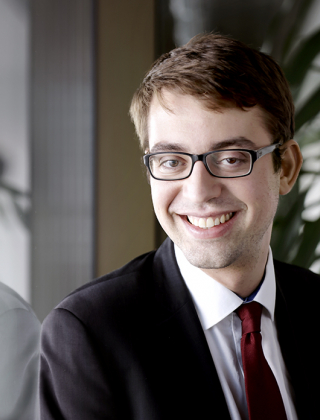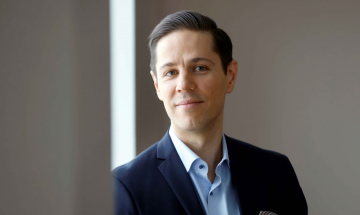
2023: the Make or Break Year for von der Leyen?
Every autumn, the European Commission is making a list and checking it more than twice: the annual Commission Work Programme (CWP). It outlines the initiatives the EU’s executive arm plans to propose and pursue in the following year. The latest version of this exercise was awaited with great curiosity by EU observers – for it may well come to define the legacy of Ursula von der Leyen’s time at the Berlaymont.
2023 will be a crucial year for the President of the European Commission: it is the last genuine opportunity for Ursula von der Leyen (EPP) and her College of Commissioners to put forward major proposals for new EU laws before the European elections and the formation of the new Commission will put a temporary halt to the work of the Union’s legislative machinery for much of 2024.
In light of this, the 2023 edition of the Commission’s Work Programme was arguably garnering even more interest than usual: its contents and tone would be seen to reflect what remaining legislative projects would be genuinely close to the hearts of von der Leyen and her colleagues. A first taste of the agenda for the coming year was presented in a “Letter of Intent” that the Commission President released on the occasion of her State of the EU speech in September. On 18 October, the full Work Programme was eventually published under the title of “A Union standing firm and united”.
Already this title deserves a little closer scrutiny, for it is symptomatic of a steady shift in priorities during the von der Leyen Commission: while strongly echoing last year’s theme of “Making Europe stronger together”, it contrasts with the first work programme of her mandate published in January 2020 which bore the heading of “A Union that strives for more”.
It is evident how that change came about: when first elected in 2019, von der Leyen had – in the wake of Brexit, the rule of law crisis in Poland and Hungary, and the fraying of the transatlantic alliance under then US President Donald Trump – pledged to revitalise the European project. Many of her flagship initiative such as the European Green Deal, a forward-looking vision for a digital Europe, and the Conference on the Future of Europe were promoted with a sense of optimism that after years of crisis, the EU would be able to make progress on the big issues of the day again. More sustainable, more innovative, and closer to the citizen – that was the ambition of the former German minister when she took office at the Berlaymont.
Then came the COVID-19 pandemic and the Russian invasion of Ukraine which both exposed significant fragilities and divisions within the EU. Rather than principally focusing on taking the Union to the next level, therefore, the von der Leyen Commission found itself faced with the need to address these structural weaknesses while trying to prevent a fragmentation among Member States.
It is thus not a surprise that improving the EU’s resilience and solidarity are at the core of the 2023 Commission Work Programme. Concretely, this goal is to be achieved by multiple means: first, the Commission wants to protect the Union from systemic economic, ecological, and security threats by pressing ahead with initiatives that should foster the autonomy and robustness of European industry, governance, and infrastructure. Key proposals in this regard are the European Critical Raw Materials Act that is intended to secure the access of the EU to materials that will be pivotal to ensuring the success of the green and digital transition; the establishment of an EU Hydrogen Bank that seeks to accelerate the uptake of this renewable gas as a central component of the Union’s energy mix; and the Defence of Democracy Package that is, among others, attempting to shield the democratic processes of the EU against manipulation from abroad.
Secondly, the Commission wants to take action to support vulnerable Europeans during economic hardship and improve conditions for SMEs: among the most significant initiatives in this context are a reform of the EU electricity market design to prevent the high prices seen recently by end-users from becoming the norm; as well as common EU rules for business income taxation (BEFIT) and a reform of the Late Payments Directive that are both supposed to make it easier for small and middling companies to operate.
Lastly, in a sign that it has not wholly given up on its original ideals, the Commission has sought to place a great emphasis on its receptiveness to the feedback of EU citizens, as voiced during the Conference on the Future of Europe: thirty-five of the fourty-three proposals to be released in 2023 are “following up” on requests made by the democratic grassroots initiative that the EU undertook between 2021 and 2022, according to the Commission. A proposal on regulating Metaverse also fits this theme.
Overall, the 2023 Commission Work Programme maintains a balance between ambition and pragmatism; it is noteworthy that it is the thinnest one of the von der Leyen Commission so far. It is especially striking that only eight REFIT initiatives are being proposed by the Commission. This also suggests, however, that von der Leyen and her Commissioners want to focus their efforts on the most innovative proposals in the coming twelve months.
Whether they will succeed in this aim remains to be seen. There has already been significant pushback to the Commission’s plans. In fact, von der Leyen’s own national party – the German Christian democrats (CDU) – has heavily and openly criticised the Work Programme and the modus operandi of her Commission more widely for placing excessive regulatory burdens on Europeans in times of crisis.
The resistance von der Leyen is facing from her own political family shows the precarious position the Commission President is in at present: if the split between her and the European centre-right deepens, it could put her return into the Berlaymont in 2024 into jeopardy. 2023 may thus well become the year that determines von der Leyen’s fate as Commission President: will it be a milestone on her path to re-election – or the last year for her to put her personal stamp on the Union?
Further information:
Henrique Laitenberger, Head of EU Affairs, tel. +358 (0)40 353 1326, henrique.laitenberger@teknologiateollisuus.fi, Twitter: @ToEnLaiten
More on the subject:
Decision time postponed? The EU’s balancing act in times of war and energy crisis


